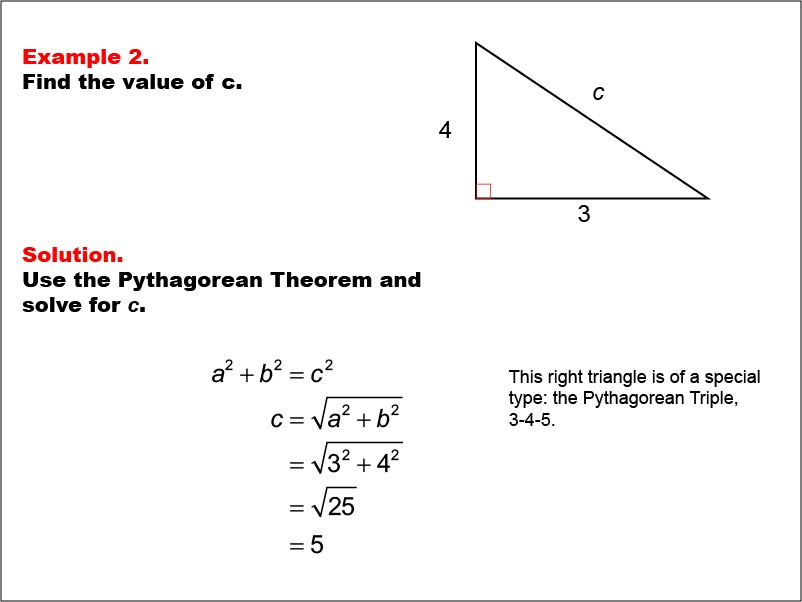
Display Title
Math Example--Right Triangles-- Example 2
Display Title
Math Example--Right Triangles-- Example 2

Topic
Right Triangles
Description
In this example, we have a right triangle with sides of length 3 and 4, and an unknown hypotenuse labeled c. The goal is to determine the value of c using the Pythagorean Theorem. By applying the formula a2 + b2 = c2, we can calculate that c = √(32 + 42) = √(25) = 5.
This example builds upon the previous one, reinforcing the application of the Pythagorean Theorem in right triangles. It demonstrates how the theorem can be used with different side lengths, helping students understand its versatility in solving various right triangle problems.
Exposing students to multiple worked-out examples is crucial for developing a comprehensive understanding of right triangles and the Pythagorean Theorem. Each new example provides an opportunity to practice the problem-solving process, recognize patterns, and build confidence in applying the theorem to different scenarios.
Teacher's Script: Let's move on to our second example. This time, we have a right triangle with sides 3 and 4. Can you tell me what we're trying to find? Exactly, we need to find the length of the hypotenuse, c. Remember, we use the Pythagorean Theorem for this. Who can remind us what that theorem states? Great! Now, let's work together to plug in our known values and solve for c.
For a complete collection of math examples related to Right Triangles click on this link: Math Examples: Right Triangles Collection.
| Common Core Standards | CCSS.MATH.CONTENT.8.G.B.6, CCSS.MATH.CONTENT.8.G.B.7, CCSS.MATH.CONTENT.6.G.A.1 |
|---|---|
| Grade Range | 6 - 8 |
| Curriculum Nodes |
Geometry • Triangles • Right Triangles |
| Copyright Year | 2013 |
| Keywords | right triangles, leg, hypotenuse |